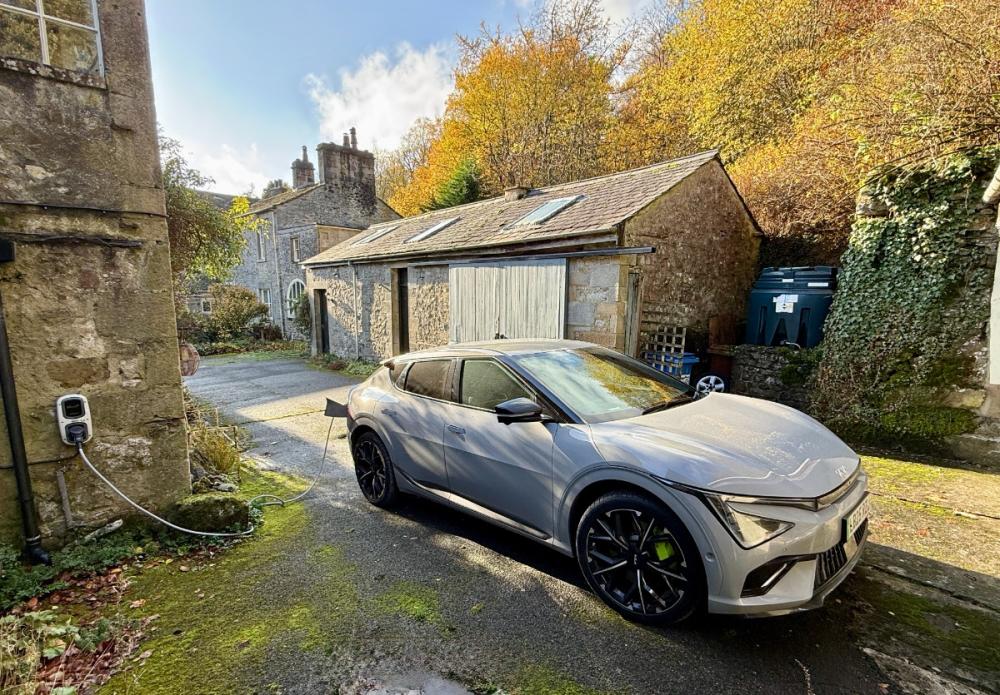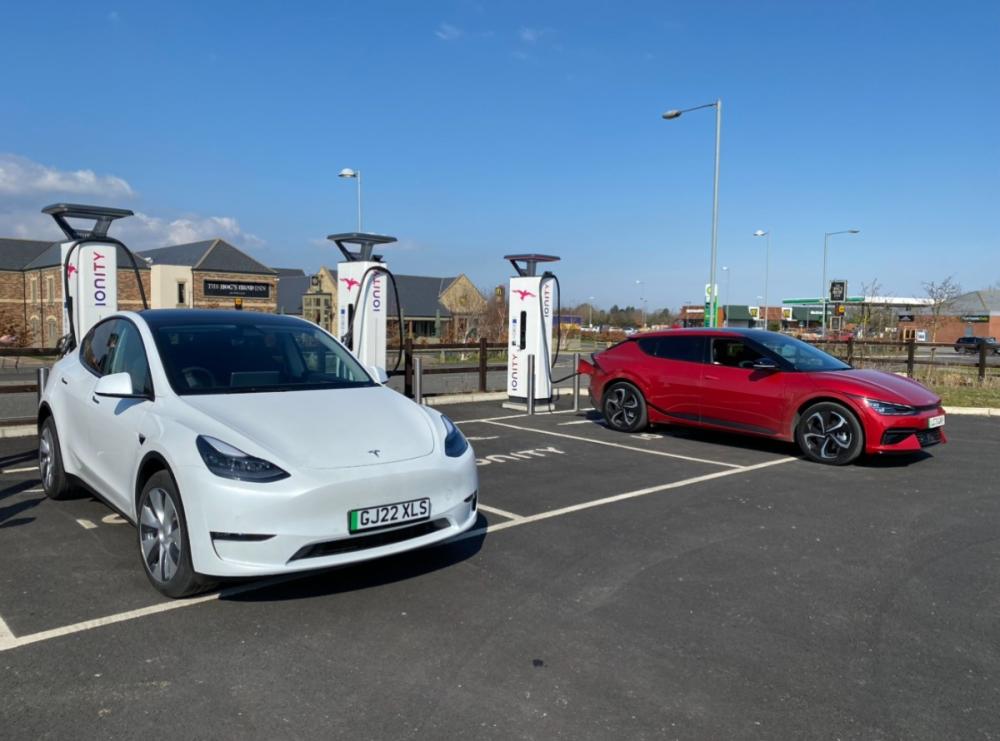search
date/time
 | Lancashire Times A Voice of the Free Press |

Andy Harris
Motoring and Property Editor
@ytimesmotoring
1:00 AM 8th November 2025
cars
Electric Dreams Or A Charging Nightmare?

Kia EV6 charging cheaply at home
However, an event near Windsor meant that I was unlikely to reach my destination without a stop. My aim was to get to a large charging hub I had used before, just off the M40 near Banbury. Ample fast chargers and a variety of places to refuel the body too, even if coffee and cake are really not required.
An accident on the M40 had Waze rerouting me, so the car suggested a stop at Corley Services on the M6. There was a small queue for one of the six chargers (though I noted more were under construction). Once plugged in, I was disappointed that the car was only charging at between 35 and 40 kWh, way short of the advertised 125 kWh. With time short, I left, hoping the car had enough range to just make it to Banbury.
Once again, the EV6’s screen flashed up with another suggestion, and some 10 minutes later the car was plugged in to a Shell unit, pulling in a heady 145 kWh. I charged the car from 25% to 60% battery in next to no time, but at 85p per kW, this charge cost a heady £55.
The good folk at Kia ensured the EV6 was fully charged for the journey home, and slower speeds due to rush hour traffic meant I could probably have reached journey’s end without charging. I would have had less than 10 miles of range according to the in-car computer. I chickened out and stopped for 5 minutes for a quick top up.

Expensive and occasionally frustrating public charging
My rural location also means that the nearest fast charging is over 20 miles away. Rural dwellers often cover larger mileages commuting etc, so the incentive to go fully electric is perhaps less appealing.
Which brings me on to the breaking news that our Chancellor looks likely to introduce a 3p pay-per-mile tax on electric cars in this month’s budget. EV drivers do now pay annual road tax (£195) and there is also an expensive car supplement on cars that cost over £40,000 when new.
I had thought the government was trying to encourage motorists to transition to electric cars. Perhaps I am mistaken. If implemented, the rural motorist with an electric car will suffer more with the extra miles covered. Public transport is not always an option.
I wonder if the proposed tax will cover plug-in hybrids, many now capable of covering 50+ miles on electric-only propulsion. I am told drivers will be expected to estimate how many miles they will cover over the course of the year and pay the 3p tariff accordingly. Really?
Until we hear the words come out of our Chancellor’s mouth on 26th November, I will not take anything as guaranteed. Even if the pay-per-mile charge is relatively modest, it will only serve to put off more drivers from making the change to greener motoring. And that would be a shame, as the latest electric cars bursting onto the market are a delight to drive and for some at least, easy to own.
And if pay per mile is introduced for electric cars, what’s the betting it will be gradually introduced for all vehicles, regardless of the way they are powered, in years to come.